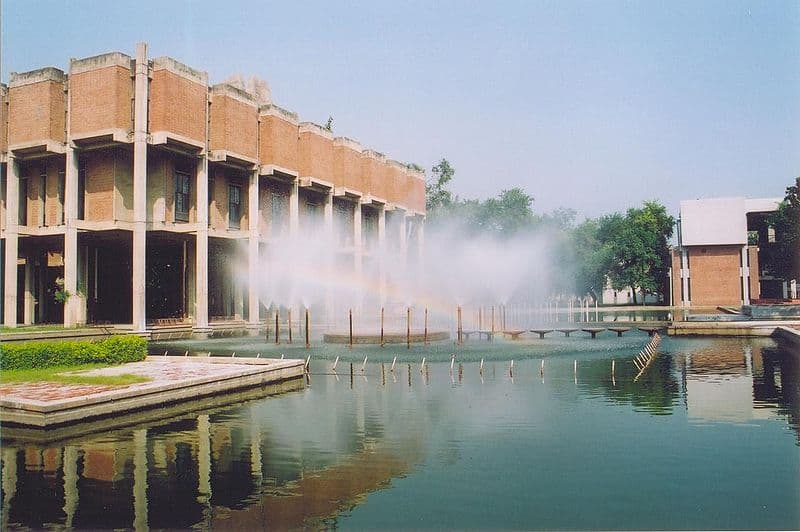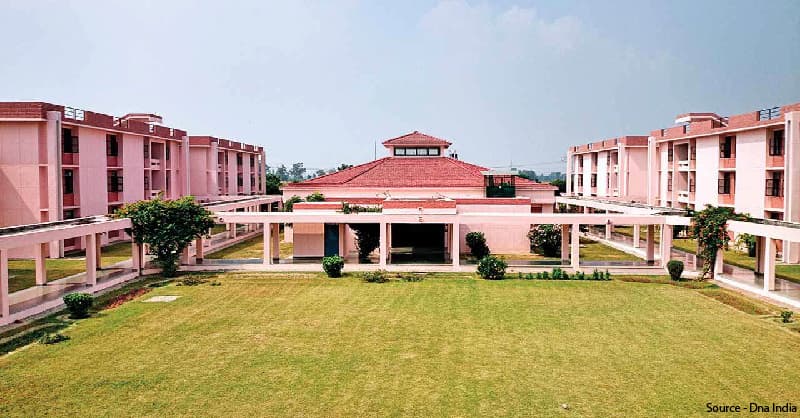IIT Kanpur researchers achieve landmark visualization

IIT Kanpur research team led by Prof. Arun K. Shukla has made a significant scientific breakthrough.
They have made a breakthrough with the first-ever visualization of the complete structure of the Duffy antigen receptor.


It facilitates infections by destructive pathogens like the malaria parasite, Plasmodium vivax and the bacterium, Staphylococcus aureus, say sources from IIT Kanpur.
Prof Arun is from the Department of Biological Sciences and Bioengineering, say sources from IIT Kanpur.
Research Paper
The research paper on the discovery, published in Cell, a peer-reviewed prestigious scientific journal, will arm scientists working in the field of antimicrobial drug resistance with new information to further their research, say sources from IIT Kanpur.

Given the rising challenges of drug-resistant infections, the visualisation of the structure of the Duffy receptor will pave the way for further research.
It will pave way for research into novel therapies for drug-resistant malaria and Staphylococcus infections as well as infections like HIV, say IIT Kanpur researchers.
Unravel
Prof Arun K Shukla from Department of Biological Sciences and Bioengineering at IIT Kanpur spoke about the research work.

For years, researchers around the world have been trying to unravel the secrets of the Duffy antigen receptor, given its role in acting as a ‘gateway’ to help bacteria and parasites attack our cells and cause disease, said Prof Arun of IIT Kanpur.
Our success in finally visualizing this receptor at a high resolution will help us understand how pathogens exploit it to infect the cells, he said.
The knowledge will support the designing of next-generation medicines including new antibiotics and antimalarials, especially at a time when we are facing escalating antimicrobial resistance, he said.
Common
While the Duffy antigen receptor is common in most populations, a significant percentage of people of African descent do not produce the Duffy receptor on their red blood cells due to a genetic variation, said Prof Arun from IIT Kanpur.

This makes them naturally resistant to certain types of malaria parasites that rely on that specific ‘gateway’ to infect those cells, says Prof Arun.
This shows how important the Duffy antigen receptor is for these diseases and how targeting it could lead to new treatments, added Prof. Shukla.

This threw new light on the Duffy receptor’s unique structural features and distinguishing it from similar receptors in the human body.
This detailed understanding will be crucial in the designing of highly targeted therapies that can effectively block infections without causing unwanted side effects.
Director of IIT Kanpur
Prof. Manindra Agrawal, Director, IIT Kanpur spoke about the research. This remarkable achievement by our team of researchers is one more laurel in IIT Kanpur’s crown of achievements, pushing the boundaries of scientific knowledge.
The success of this research will enhance our understanding of infectious diseases and help develop therapies for drug-resistant pathogens, said director of IIT Kanpur.
This is a result of IIT Kanpur’s support to cutting-edge research that addresses real-world problems and solidifies our standing on the global scientific stage, he said.

It also comprised Manisankar Ganguly, Divyanshu Tiwari, Ramanuj Banerjee along with and Prof. Arun Kumar Shukla from IIT Kanpur.
In addition, the team also included researchers from CDRI Lucknow, Zurich in Switzerland, Suwon in Republic of Korea, Tohoku in Japan, and Belfast in United Kingdom.
This research was funded primarily by the Department of Biotechnology (DBT), Department of Science and Technology (DST), Science and Engineering Research Board (SERB), DBT Wellcome Trust India Alliance, and IIT Kanpur.
S Vishnu Sharmaa now works with collegechalo.com in the news team. His work involves writing articles related to the education sector in India with a keen focus on higher education issues. Journalism has always been a passion for him. He has more than 10 years of enriching experience with various media organizations like Eenadu, Webdunia, News Today, Infodea. He also has a strong interest in writing about defence and railway related issues.








